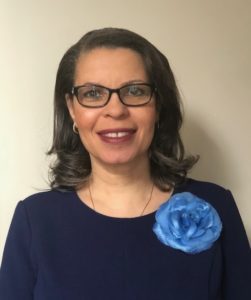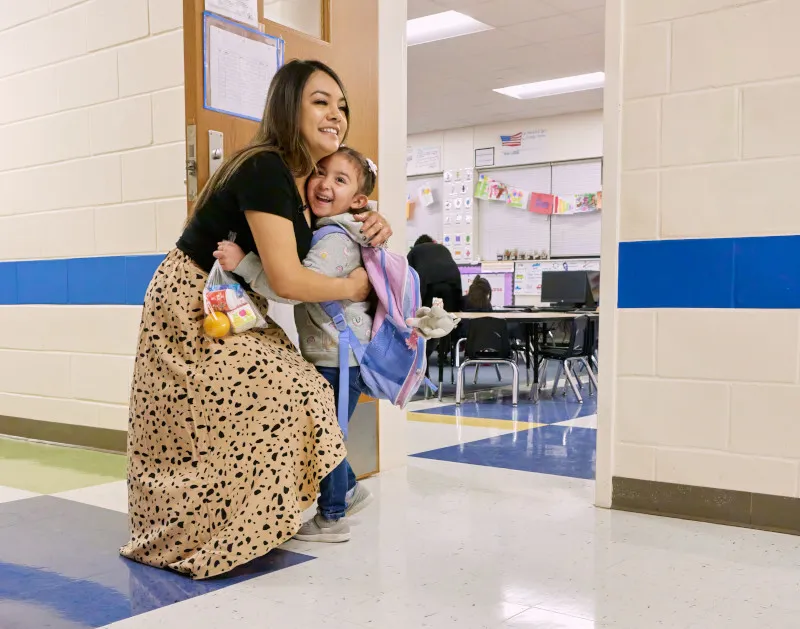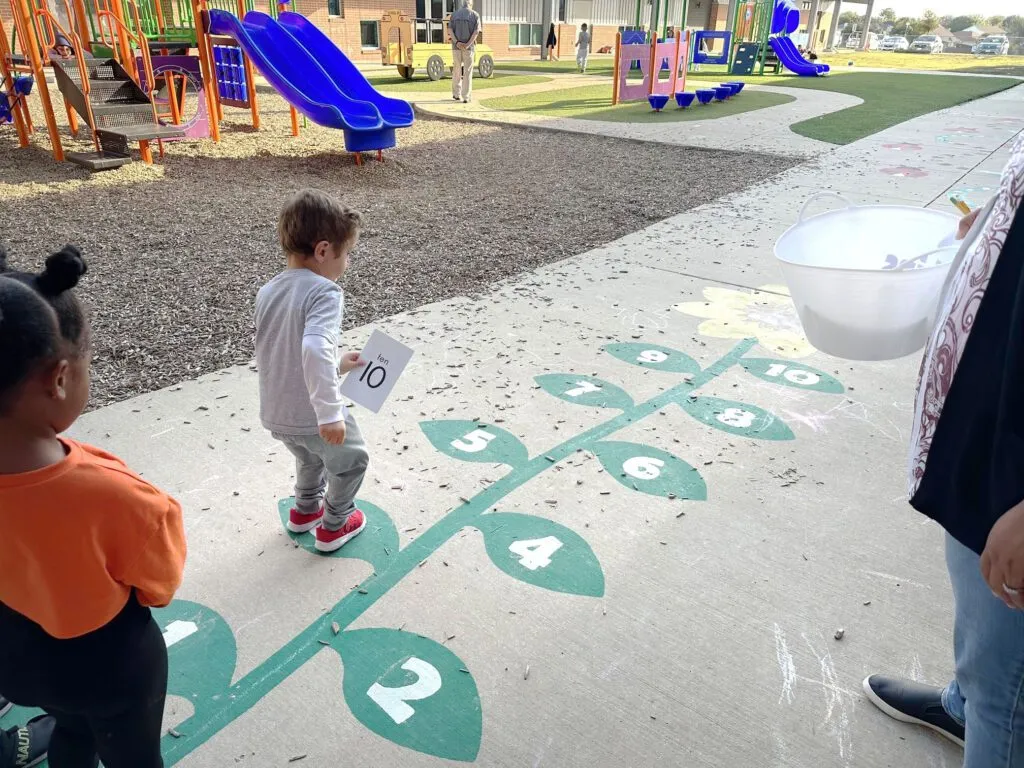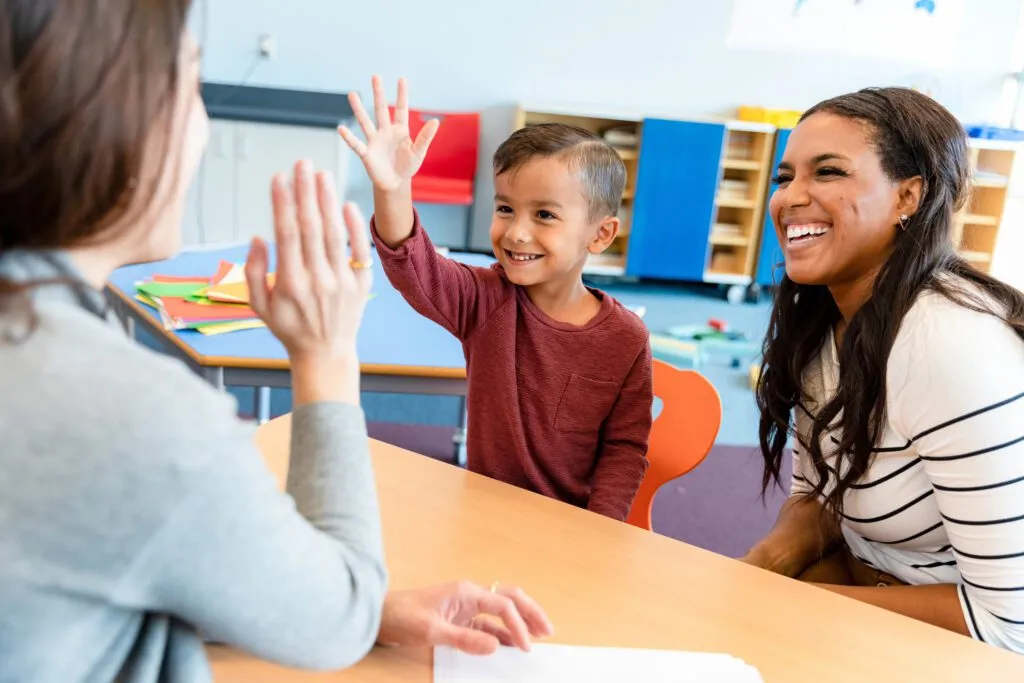Why It Matters: The Morning Meeting


“Good morning, everyone! Let’s start our day. Meet me on the carpet.”
Some variation of that cry is heard near and far, in countless classrooms around the world. It usually heralds a meeting of some sort. Some may call it morning message, morning meeting, or circle time. Here at Teaching Strategies, we call it “large-group time.” Whatever you may call it, many of us do this “morning meeting”—but why? What is a large-group time? What does it include? Is it even an important part of the early childhood day? Let’s take a look.
Establishing a Structure of the Day
As early childhood educators, let’s agree that an important aspect of building an effective learning environment is establishing a structure for each day (a predictable sequence of events). When time is blocked out in an orderly and consistent fashion, children tend to feel secure and become increasingly independent. When children do not know when things will happen, classroom life can seem chaotic and may feel overwhelming for them.
Now that we have that established, how do we begin each day in a classroom that uses The Creative Curriculum? Large-group time.
What Is Large-Group Time?
Teaching Strategies typically recommends two large-group times a day: one at the beginning of the day and one at the end called “large-group roundup.” We will focus on the large group that starts the day. It involves all children in the classroom coming together as members of the learning community. Starting this meeting in a similar way each day, such as by singing a welcome song, reciting a favorite fingerplay, or performing a morning stretch or yoga pose, gives the day predictability and consistency and is highly recommended. When planned with intention and structured well, large-group meetings with the whole class serve several important purposes for the classroom day itself and for children’s development and learning.
Perhaps most importantly, large-group time gives children a sense of belonging, an opportunity to be part of something bigger than themselves. It helps enhance their social skills. The first meeting sets the tone for the day and for the learning that will take place. You will find children are often eager to talk about a variety of topics, such as what happened at home, a new pair of shoes, or what they want to do at school.
What Happens During Large-Group Time?
Large groups are most successful when the meeting time is kept short, usually 10–20 minutes. Activities might include
- taking part in read-alouds as a class,
- discussing plans for the next activity, or
- solving a problem or addressing an issue that occurred during choice time.
Large group also provides numerous opportunities for children to develop skills and learn content. For instance, a teacher might
- prompt an authentic experience with math by having the children count how many children are present each day,
- teach science by discussing the weather and drawing children’s attention to signs of the seasons, or
- introduce social studies topics by talking about something taking place in the community such as road repairs or a new building.
Large group is also a fabulous opportunity to
- talk about new materials that you added to the interest areas;
- discuss a field trip, a special cooking activity, or a guest who will visit the class;
- review the day’s schedule;
- leading a discussion about the study topic; and
- conduct a shared writing experience, recording children’s ideas and questions as a group.
Does It Matter?
It does. Large group sets the tone for the day. It focuses attention on the tasks at hand, gives children time to meet and greet everyone from the time spent away, helps to make that much-needed transition from home to school, and reminds children that they belong to this group and this classroom community.
It also helps us as caregivers to center ourselves, to take the “temperature” of the children in the classroom, to bring to order the community that is our classroom. If we think about it, many of the events in our lives have a preamble to focus and bring us together: sporting events begin with a song or a pledge, movies begin with trailers and sometimes a public service announcement, and meetings often start with a greeting of some sort before the content begins. It is a signal for us that something new and important is beginning.
So, no matter what we call it, let’s start the day together. Meet me on the carpet….

Include All Learners with The Creative Curriculum
Build children’s confidence, creativity, and critical thinking skills through hands-on, project-based investigations.
Learn more

